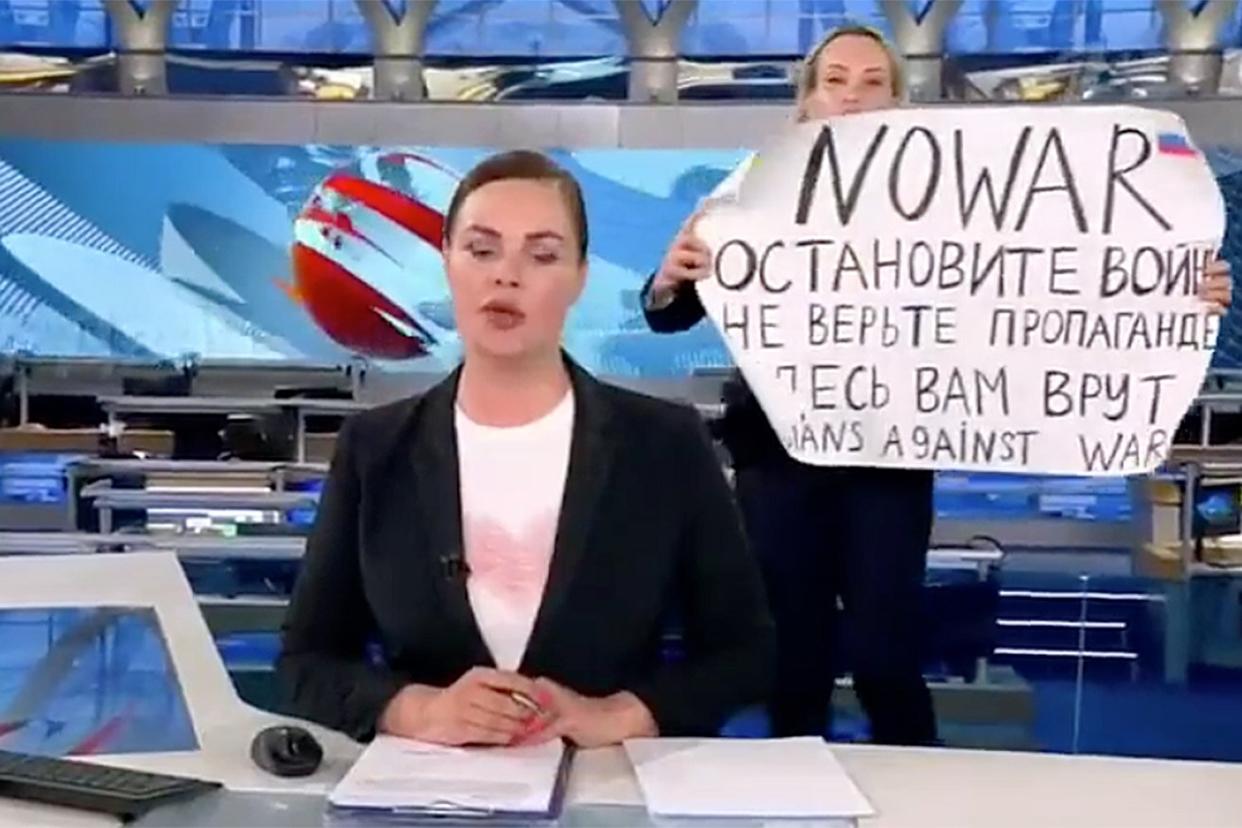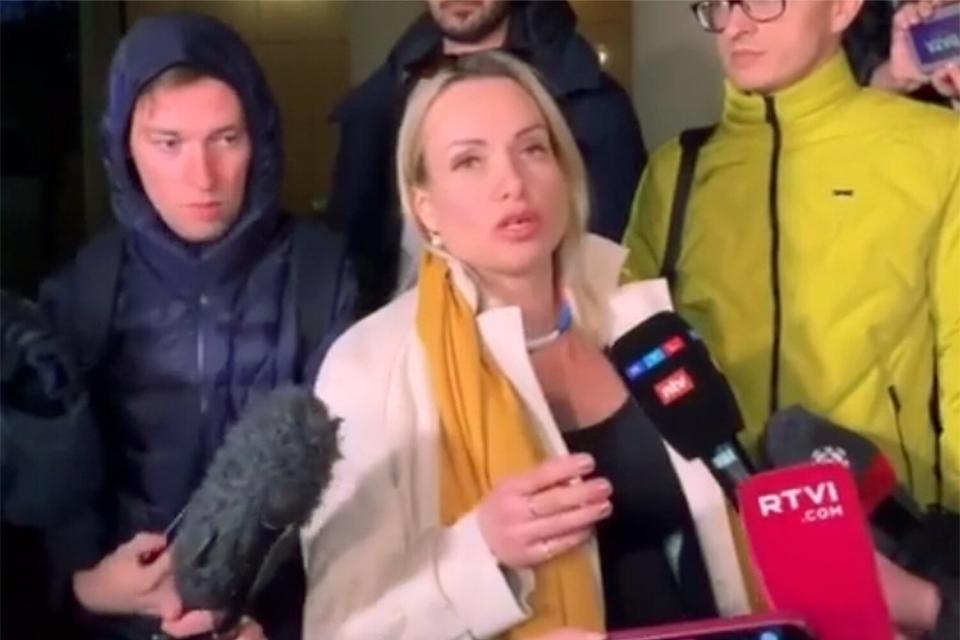Russian Editor Detained for Anti-War Protest on Live TV Says She's 'Extremely Concerned' for Her Safety

- Oops!Something went wrong.Please try again later.
twitter Marina Ovsyannikova's famous on-screen protest
The Russian TV news editor who used a live broadcast to stage a protest against her country's war in Ukraine says she's now worried for her safety.
"I believe in what I did, but I now understand the scale of the problems that I'll have to deal with and, of course, I'm extremely concerned for my safety," Marina Ovsyannikova, 43, told Reuters Wednesday.
It is the first time that the mother of two has spoken with the press since she walked onto the set of the state-run Channel 1 news program Vremya holding a sign that read, "NO WAR. Stop the war. Don't believe the propaganda. They're lying to you here."
Ovsyannikova also released a pre-recorded video in which she spoke about her "shame" at helping spread "Kremlin propaganda" while working for Channel 1.
After the televised act of protest, which quickly went viral and even earned praise from Ukraine's President Volodymyr Zelenskyy, Ovsyannikova was detained and questioned overnight without access to legal representation, she told Reuters.

Marina Ovsyannikova/Instagram Marina Ovsyannikova
On Tuesday, she was fined 30,000 rubles (approximately $275) for posting the video but has not yet been prosecuted for her on-air, anti-war disruption, which the Kremlin described as "hooliganism."
Thousands of Russians have reportedly been arrested for protesting the country's war in Ukraine under laws that prohibit "public actions aimed at discrediting the use of the Armed Forces of the Russian Federation" and carry a sentence of up to 15 years in prison.
"I absolutely do not feel like a hero," Ovsyannikova, whose father was Ukrainian, told Reuters of her decision to speak out despite possible consequences.
"You know, I really want to feel like this sacrifice was not in vain, and that people will open their eyes," she said.
"If I end up having to serve time in jail for what I believe in, then I hope it's a minimal sentence," she continued.
Ovsyannikova said she was moved to protest because the attack on Ukraine stirred memories of growing up in Chechnya, where Russian forces fought rebels beginning in the 1990s.
"The war in Ukraine was like a trigger for me. Very vivid images from my childhood came flooding back," she told Reuters. "I understood … I could feel what those unfortunate people are going through. It's really beyond the pale."

Marina Ovsyannikova/Instagram Marina Ovsyannikova speaks to reporters following her release from jail in Moscow
"There was shelling, I was 12 years old, we gathered up our things and left," she added.
Those recollections, Ovsyannikova told Reuters, made her want to speak directly to Russian viewers.
Though she also said she has no plans to leave the country, she offered another message for the Russian public: "Don't be such zombies," she said, according to Reuters. "Don't listen to this propaganda; learn how to analyze information; learn how to find other sources of information — not just Russian state television."
Russia's attack on Ukraine continues nearly three weeks after their forces launched a large-scale invasion on Feb. 24 — the first major land conflict in Europe in decades.
Details of the fighting change by the day, but hundreds of civilians have already been reported dead or wounded, including children. More than 3 million Ukrainians have also fled, the United Nations says.
"You don't know where to go, where to run, who you have to call. This is just panic," Liliya Marynchak, a 45-year-old teacher in Ivano-Frankivsk, Ukraine, told PEOPLE of the moment her city was bombed — one of numerous accounts of bombardment by the Russians.
The invasion, ordered by Russian President Vladimir Putin, has drawn condemnation around the world and increasingly severe economic sanctions against Russia.
With NATO forces massing in the region around Ukraine, various countries have also pledged aid or military support to the resistance. Ukraine President Volodymyr Zelenskyy called for peace talks — so far unsuccessful — while urging his country to fight back.
Putin insists Ukraine has historic ties to Russia and he is acting in the best security interests of his country. Zelenskyy vowed not to bend.
"Nobody is going to break us, we're strong, we're Ukrainians," he told the European Union in a speech in the early days of the fighting, adding, "Life will win over death. And light will win over darkness."
The Russian attack on Ukraine is an evolving story, with information changing quickly. Follow PEOPLE's complete coverage of the war here, including stories from citizens on the ground and ways to help.

